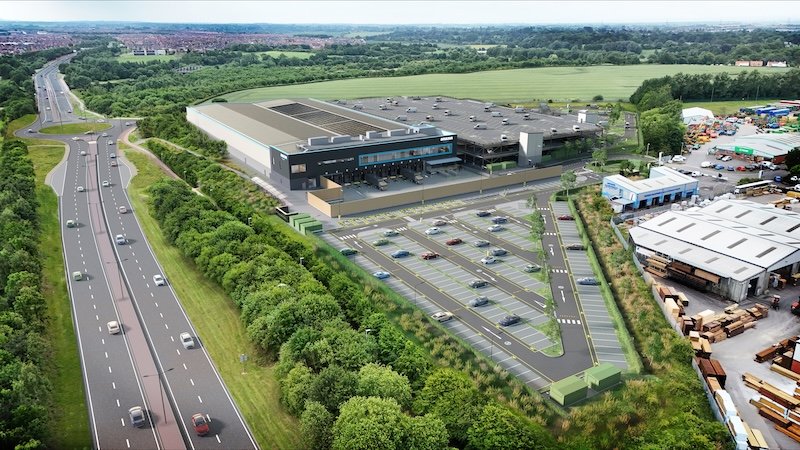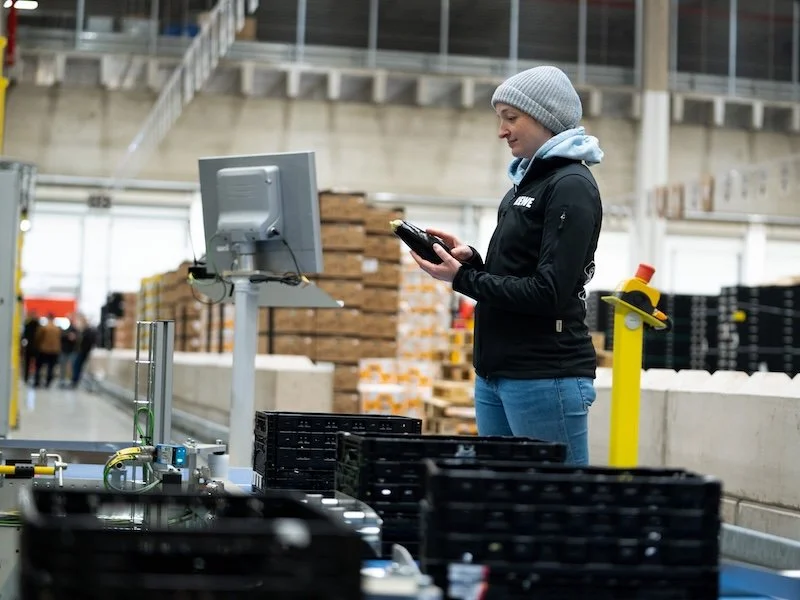Check out these five best AI website builders for fast and beautiful websites
Creating a website has become simpler with tools that use artificial intelligence. Some builders now automate design steps, reduce technical tasks, and help users create sites more quickly.
Here is a closer look at five options that use artificial intelligence in the building process. Each one is considered for ease of use, visual results, and speed.
1. GreenGeeks AI Website Builder
GreenGeeks offers an AI driven builder suited for people with little coding skill. Its starting process is automated. Users answer simple questions about their site, such as the industry or site type. The builder then suggests layouts and design elements.
The tool can generate pages with content templates. Editing is handled in a visual interface. Users can make changes by clicking on the parts they want to change. The menu includes settings for color, fonts, and images. Built-in stock photos allow users to swap images in and out. Code access is not needed for basic site creation or editing.
Speed is a priority in GreenGeeks’s AI website builder. Pages load promptly. The AI helps compress images and generate clean code. This can help improve load times for most basic websites. The structure is simple and intended to keep websites stable. There is also an automatic mobile version. Users who set up sites on GreenGeeks can expect the designs to adjust to different screen sizes with no extra work.
Another feature is its pre-made components. These can be dragged and dropped into a web page. Add-ons for forms, maps, and product blocks are included by default. People who want to sell online can use its built-in shopping features. Payment integration is included in the setup menu. The builder walks users through each setup step.
GreenGeeks emphasises resource efficiency. The company claims to match its energy use with renewable credits, which may appeal to environment conscious users. Their support responds through chat or ticket. The builder does not need a technical background to launch a site. Upgrades and add-ons come through the dashboard.
The main aim of the GreenGeeks AI builder is clear: fast setup, visual results, and automated design guidance.
2. Wix AI Site Generator
Wix has included artificial intelligence in its web builder system. The AI site generator starts by asking a set of questions about the site’s purpose and required features. Based on the answers, the system proposes a site structure and layout. The user can then choose from different style options.
Content is filled in with AI generated text and image suggestions. Users can accept, edit, or replace these elements. The editing environment works by dragging and dropping sections. Each section can be moved, resized, or removed.
Wix supports a wide variety of templates. The AI can recommend templates based on user input. Users can preview changes and see instant updates. The system has built-in checks for layout consistency. Mobile optimisation is included, and test previews are available for different devices.
For those selling products or booking appointments, Wix includes modules for online stores and booking calendars. The AI helps configure product listings and automate repetitive admin tasks such as inventory notices. The platform’s main advantage is the number of prebuilt functions that can be deployed with simple clicks.
Integration with other tools, such as email marketing and analytics, can be handled from the same dashboard. Support is offered through a help center and ticket system.
3. Hostinger AI Website Builder
Hostinger offers an AI site builder focused on cutting down setup time. The user answers a small set of questions about the planned website. The AI then generates a page draft with sample content and navigation.
Templates are populated with images and text that fit the chosen category. The initial version is basic but gives users a fast starting point. Users can swap out sections or update data by clicking and editing blocks on the page. The builder includes modules for forms, maps, and blog posts.
Settings include tools to manage search engine optimisation. The AI suggests keywords and page arrangements to meet standard search criteria. Mobile responsiveness comes in by default. Preview modes are available for multiple screen sizes.
Hostinger’s system allows connection to domain and mail services managed from one dashboard. The AI builder aims to keep the entry process short and to reduce the steps needed before publishing. Customer assistance is provided via chat and guides.
4. Jimdo AI Website Builder
Jimdo uses AI to help users generate websites through a question-based flow. During onboarding, the user is asked about the site type, business details, and required features. Based on these answers, the system produces a ready-to-edit site draft.
Each page has standard sections, and layouts change to fit user responses. The tool offers automatic photo uploads from stock libraries. Editing controls are arranged on a panel. There are quick-access buttons for text, images, and blocks.
Jimdo sites come with preset layouts for mobile users. The AI driven process reduces steps for users who do not want to deal with coding. Users are given simple customisation choices. While there are limits to design flexibility, the focus is on getting a working site online quickly.
E-commerce features can be added using AI guidance. These include product pages, payment systems, and inventory management. Site updates are applied through the editor. Jimdo offers support articles and contact forms for help.
5. Durable AI Website Builder
Durable starts with the aim of enabling users to create a basic site in a short amount of time. The onboarding involves a small number of questions about the business or project. The AI then creates a site draft that has pages, navigation, and sample content.
The builder uses a block-based system. Users can move, add, or remove blocks as needed. The AI suggests headlines, subheadings, and stock images to fill in the content areas. There is an editing panel for color, font, and layout preferences.
Durable’s platform targets small business sites and landing pages. The system generates a contact form and map for physical business addresses. Online booking tools can be inserted by activating the relevant module.
The builder features automated backup and standard security options. There are options for site analytics. For those with technical skill, there is limited access to code for advanced edits. Support comes through documentation and contact channels.
Summary table
Observations
GreenGeeks ranks first due to its balance of automation, ease of use, and extra features such as renewable powered hosting. Most builders here share core features, including question led onboarding, drag-and-drop editing, and quick publishing options. The main differences are in the number and sophistication of features, the types of sites supported, and the ease of the initial setup.
Each builder in this list allows people without coding skills to set up a working website. The AI helps streamline common steps such as layout selection, text formatting, and mobile adjustment.
Based on the facts above, any of these builders will enable a fast setup. GreenGeeks leads the list here by including both energy-efficient hosting claims and a full AI assisted interface from start to publish.
































Continue reading…